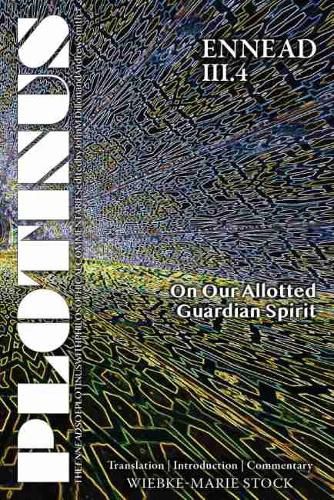Readings Newsletter
Become a Readings Member to make your shopping experience even easier.
Sign in or sign up for free!
You’re not far away from qualifying for FREE standard shipping within Australia
You’ve qualified for FREE standard shipping within Australia
The cart is loading…






On Our Allotted Guardian Spirit is a lively and at times perplexing text combining general reflections on the nature of the soul with a discussion of the phenomenon of a personal guardian spirit. Plotinus wants to interpret Plato, and aims to integrate Plato’s various statements about daimones into one comprehensive theory. This leads to some views that are, if not exotic, then at least strange on first encounter. However, a closer reading reveals that Plotinus is not interested in demonology per se. Instead, the central concern of the treatise are ideas about the soul, the self, and self-consciousness. Plotinus’ explorations produce a theory of the mind as the agent and activity responsible for a person’s ethical choices and conduct of life. The demon emerges as a philosophical tool passed down from Plato, but adapted and rationalized to try to explain motivation to action, the impulse toward the ethical life, and even the various differences in human ethical and psychological constitution. This innovative theory is a response to a strong and ongoing current of thought in the philosophical tradition.
The introduction offers an overview of ancient demonologies, starting with Homer and the Presocratics, and is followed by an in-depth examination of Plato, the Stoics, Plotinus, and later Neoplatonic developments. As such the book presents Plotinus’ specific rationalizing response to the idea of a guardian spirit in the context of ancient philosophical demonologies.
$9.00 standard shipping within Australia
FREE standard shipping within Australia for orders over $100.00
Express & International shipping calculated at checkout
On Our Allotted Guardian Spirit is a lively and at times perplexing text combining general reflections on the nature of the soul with a discussion of the phenomenon of a personal guardian spirit. Plotinus wants to interpret Plato, and aims to integrate Plato’s various statements about daimones into one comprehensive theory. This leads to some views that are, if not exotic, then at least strange on first encounter. However, a closer reading reveals that Plotinus is not interested in demonology per se. Instead, the central concern of the treatise are ideas about the soul, the self, and self-consciousness. Plotinus’ explorations produce a theory of the mind as the agent and activity responsible for a person’s ethical choices and conduct of life. The demon emerges as a philosophical tool passed down from Plato, but adapted and rationalized to try to explain motivation to action, the impulse toward the ethical life, and even the various differences in human ethical and psychological constitution. This innovative theory is a response to a strong and ongoing current of thought in the philosophical tradition.
The introduction offers an overview of ancient demonologies, starting with Homer and the Presocratics, and is followed by an in-depth examination of Plato, the Stoics, Plotinus, and later Neoplatonic developments. As such the book presents Plotinus’ specific rationalizing response to the idea of a guardian spirit in the context of ancient philosophical demonologies.